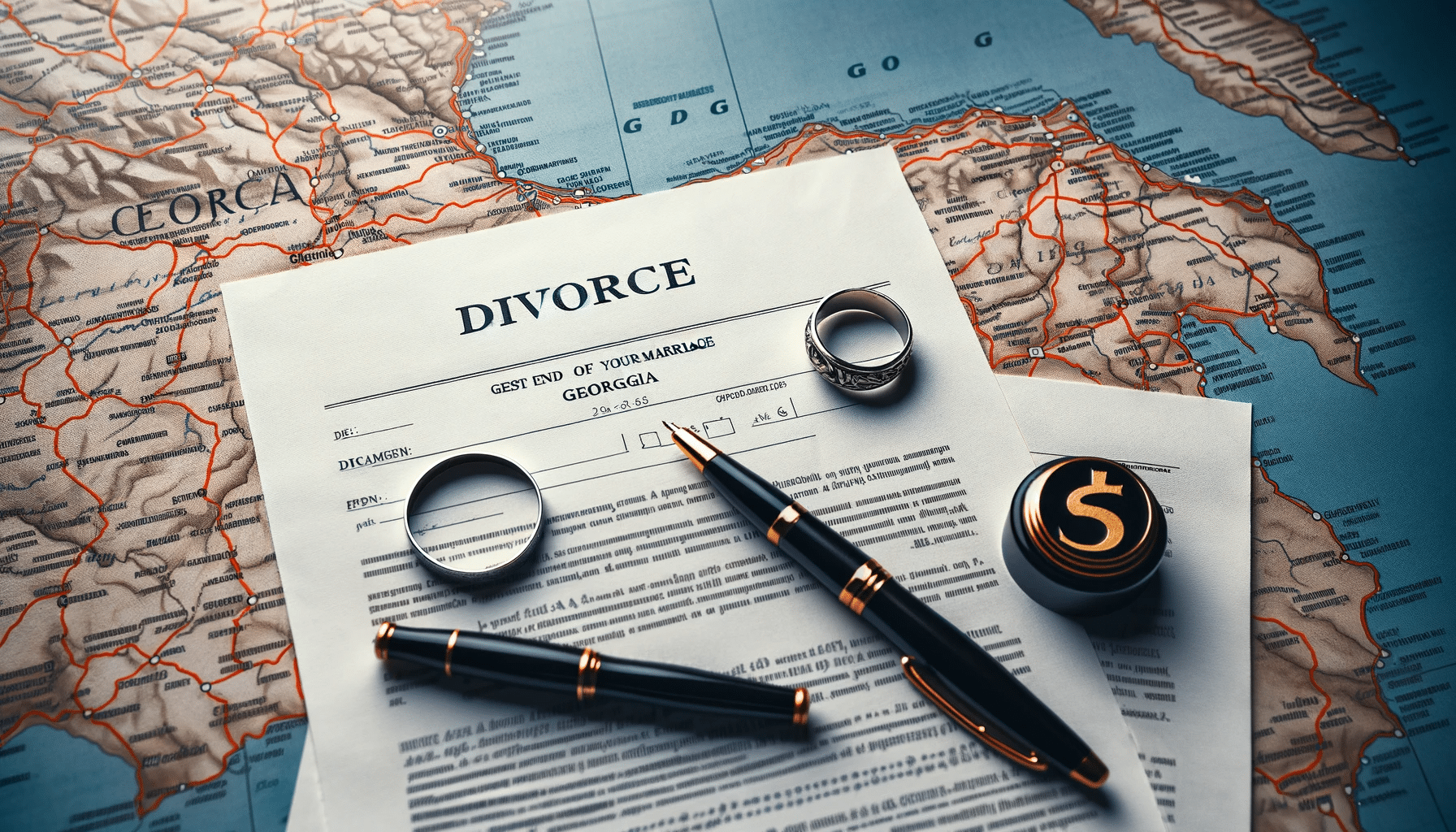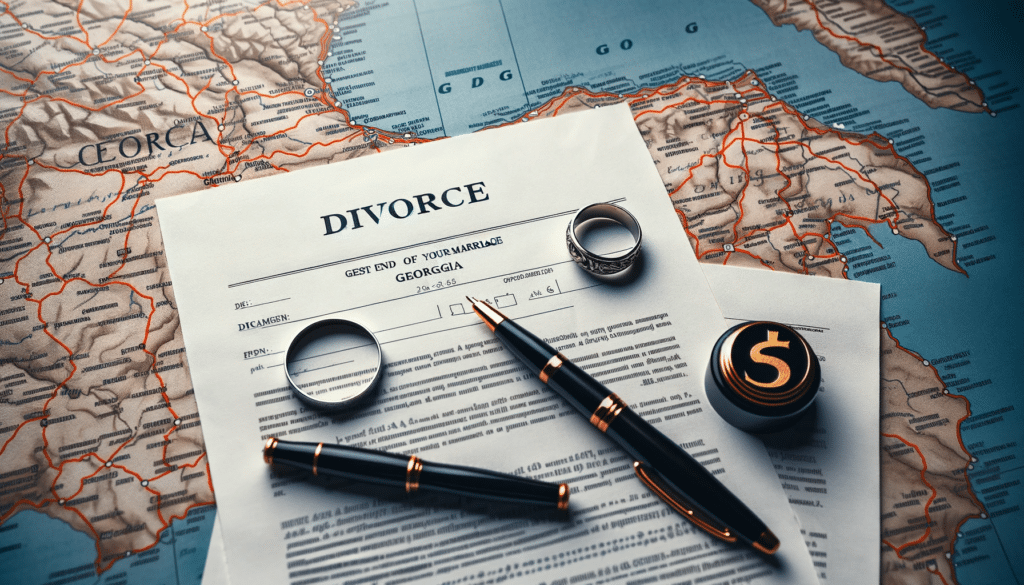Physical Address
304 North Cardinal St.
Dorchester Center, MA 02124
Physical Address
304 North Cardinal St.
Dorchester Center, MA 02124

In the Peach State, the timeline of a divorce is more than just legal jargon. It’s a journey of transformation, filled with questions and uncertainties.
How long does a divorce take in Georgia? It’s a question that echoes in the minds of many, navigating the complexities of legal separation.

Georgia, known for its southern charm and historic landmarks, also has its own unique set of rules and timelines for divorce. These rules can be as intricate as the state’s rich history.
Every step, from filing paperwork to finalizing the process, is a path laden with specific requirements and unexpected turns. But fear not, this article is your compass. It will guide you through the winding roads of Georgia’s divorce timeline.
Get ready to embark on a journey to understand how long a divorce takes in the Peach State. Keep reading to uncover the secrets of this legal labyrinth.
There is a mandatory 30-day waiting period after filing a divorce complaint in Georgia.
This waiting period gives the defendant, the spouse who is served with the divorce papers, a chance to provide a response. Even with this waiting period, a 30-day divorce is rare, as additional time is usually needed to resolve any disputes and negotiate the terms of the divorce.
The length of a divorce in Georgia can vary depending on whether it is contested or uncontested.
An uncontested divorce, where the parties agree on all major issues, can be granted after the 30-day waiting period is over. However, it can still take an additional 30-60 days or longer to finalize the divorce as the parties negotiate the terms of their agreement.
In contrast, a contested divorce, where there are disagreements to be resolved, can take anywhere from six months to several years, depending on the complexity of the case and the willingness of the parties to cooperate.
| Uncontested Divorce | Contested Divorce | |
|---|---|---|
| Agreement | Parties agree on all major issues | Disagreements to be resolved |
| Timeline | 30-90 days | 6 months to several years |
| Complexity | Less complex | More complex, involving significant assets or child custody battles |
| Resolution | Negotiate and finalize agreement | Resolve disagreements through court proceedings |
If you’d like to find out about the costs involved in a Georgia divorce, check out our article How Much Does a Divorce Cost in Georgia.

Several factors impact the timeline of a divorce in Georgia.
When a divorce case involves lots of assets or tough child custody issues, it might take more time to look after the interests of everyone involved. How busy the court is and how much the people involved want to work together can also change how long the divorce takes.
Divorce times can be different, but there are ways to make it go faster. Agreeing on key things like child custody, support, splitting property, and alimony helps. Also, giving complete and correct information on forms, and following the right steps for filing and serving documents matters. Working with a skilled divorce lawyer can make the process smoother too.
If there are kids in the divorce, figuring out custody and a parenting plan is really important. If the parents can’t agree, a judge will decide in a custody hearing. Keep in mind, fighting over custody can make the divorce longer and more expensive.
| Divorce Type | Timeline |
|---|---|
| Uncontested | 30-60 days or longer |
| Contested | 6 months to several years |
In Georgia, the length of a divorce can vary depending on several factors. Understanding these factors can help you navigate the divorce process more effectively. Here are some key factors that can impact the timeline of a divorce in Georgia:
The more complex a divorce is, the longer it might take. If the divorce involves a lot of valuable things, tricky property issues, or business matters, it needs more time for careful checking and talks between the people involved. Also, if there’s disagreement over who gets the kids, child support, or alimony, settling these issues can take extra time.
The willingness of both parties to cooperate can also affect the length of the divorce process. If both spouses are open to negotiation and reaching a settlement, the process can be expedited. However, if there is a lack of cooperation or one party is unresponsive, it may be necessary to involve the Georgia court system, which can prolong the divorce timeline.
The caseload of the court where the divorce is filed can also impact the timeline. Courts with a high number of cases may have longer processing times. This will delay the progress of your divorce.
By taking these factors into account and working with an experienced divorce attorney, you can help minimize delays and navigate the divorce process more efficiently.

If you’re going through a divorce in Georgia and want to speed things up, there are several steps you can do. By following these tips, you can minimize delays and reach a resolution more efficiently.
| Steps to Speed Up the Divorce Process in Georgia |
|---|
| Gather all necessary information and documentation |
| Work towards a complete agreement on essential matters |
| Consult with an experienced divorce lawyer |
To speed up your divorce, make sure you have all your important papers ready from the beginning. This means things like money records, documents about your property, and any other papers that might be needed.
If you keep everything well-organized and easy to get to, you can dodge delays and make the whole process smoother.
Agreeing on big issues like who takes care of the kids, support payments, splitting up property, and alimony can really make the divorce go faster. If you can solve these things without fighting in court, you’ll save time and money.
Think about using a mediator or a divorce attorney who focuses on working together. They can help you talk things out and reach a good agreement.
Having a good divorce lawyer who knows all about Georgia’s divorce laws can speed things up. They can lead you through each part, give you helpful advice, and take care of all the paperwork and legal stuff for you.
With an expert helping you, you can go through the divorce more easily and make sure your rights and what you want are looked after.

If you have children and are going through a divorce in Georgia, let’s touch on how child custody is determined and how it can impact the overall timeline of your divorce process.
In a divorce with children, the focus will be on working out custody terms and creating a parenting plan that is in the best interests of the children involved. If both parties can agree on co-parenting arrangements, the process can proceed more smoothly.
However, if disagreements arise, a judge will step in to make custody decisions during a contested custody hearing.
Custody disputes can significantly extend the length and cost of your divorce process. It’s always advisable to prioritize open communication, compromise, and the well-being of your children to reach a resolution as quickly as possible.
In conclusion, the duration of a divorce in Georgia can vary greatly, depending on several factors.
Uncontested divorces, where both parties agree on all terms, can be resolved in as little as 31 days. However, contested divorces, where disagreements exist, can take much longer, sometimes over a year.
Key factors affecting the duration include the complexity of the case, the court’s schedule, and the willingness of both parties to cooperate and reach agreements. To expedite the process, you’ll need to be well-prepared, seek mediation or legal counsel as needed, and strive for amicable negotiations.
Remember, each divorce is unique, and understanding these variables can help manage expectations and reduce the timeline where possible.
To see how the timeline of a divorce in Georgia compares to how long it takes in other states, check out our articles about how long does a divorce take in Florida and the divorce timeline in South Carolina.
The average timeline for most no-fault divorces in Georgia is about 45 to 60 days, with a mandatory 30-day waiting period after filing the divorce papers. However, the length of a divorce can vary depending on factors such as the complexity of the case, whether it is contested or uncontested, and the county where it is filed.
Yes, in Georgia, there is a mandatory 30-day waiting period after filing a divorce complaint. This waiting period gives the defendant, the spouse who is served with the divorce papers, a chance to provide a response. It’s important to note that even with this waiting period, a 30-day divorce is rare, as additional time is usually needed to resolve any disputes and negotiate the terms of the divorce.
An uncontested divorce, where the parties agree on all major issues, can be granted after the 30-day waiting period is over. However, it can still take an additional 30-60 days or longer to finalize the divorce as the parties negotiate the terms of their agreement. In contrast, a contested divorce, where there are disagreements to be resolved, can take anywhere from six months to several years, depending on the complexity of the case and the willingness of the parties to cooperate.
Several factors can impact the timeline of a divorce in Georgia. The complexity of the case, such as the presence of significant assets or a complex child custody battle, can require more time to effectively represent and protect the interests of both parties. Additionally, the caseload of the court and the willingness of the parties to cooperate can also affect the length of the divorce process.
While the length of a divorce process can vary, there are steps you can take to potentially speed up the process. These include reaching a full agreement on essential matters such as child custody, support, property division, and alimony, providing accurate and detailed information in the required forms, and following proper filing and serving processes. Working with an experienced divorce lawyer can also help navigate the process more efficiently.
If children are involved in a divorce, working out custody terms and a parenting plan will be a central focus. If both parties are unable to agree on co-parenting arrangements, a judge will make those decisions in a contested custody hearing. It’s important to note that custody disputes can significantly add to the length and cost of a divorce process.